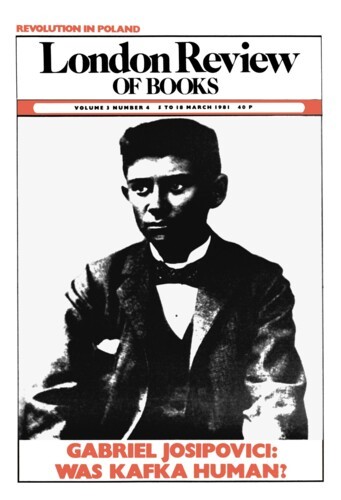Michael Szkolny
Michael Szkolny now teaches at a French university.
Revolution in Poland
Michael Szkolny, 5 March 1981
The bizarre ideological inversions which characterise the modes of expression of contemporary East European political movements serve to render invisible to the casual observer the real social character of these movements. For this reason alone most Western analysis of the recent events in Poland has conformed broadly to one of two stereotypes. First, there is the conventional wisdom of the Right according to which the two primary forces in the present surge of revolt are nationalism and religion. Second, there is the semi-apologetic view favoured by social democrats and Eurocommunists which sees the upheaval as a struggle for the ‘democratisation of socialism’. Both analyses contain of course a germ of truth: but whereas from the first standpoint it is impossible (and perhaps undesirable) to see the real social forces which express themselves faute de mieux in the traditional language of reaction, the second standpoint begs the most fundamental question about the character of the existing regimes of Eastern Europe.
Read anywhere with the London Review of Books app, available now from the App Store for Apple devices, Google Play for Android devices and Amazon for your Kindle Fire.
Sign up to our newsletter
For highlights from the latest issue, our archive and the blog, as well as news, events and exclusive promotions.

